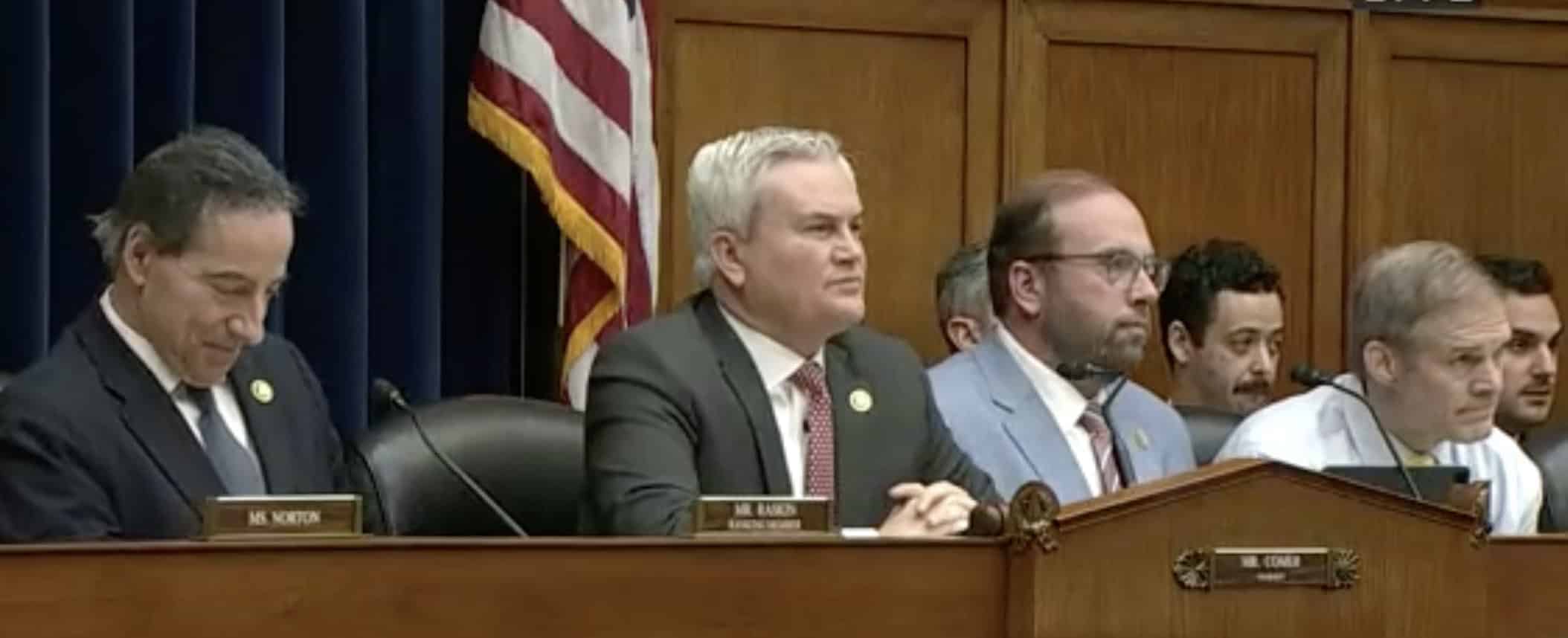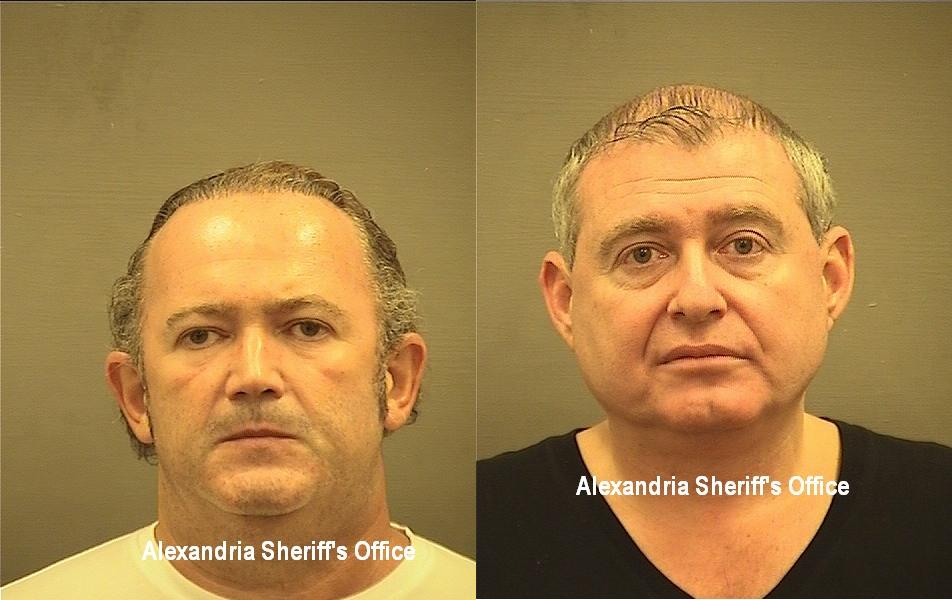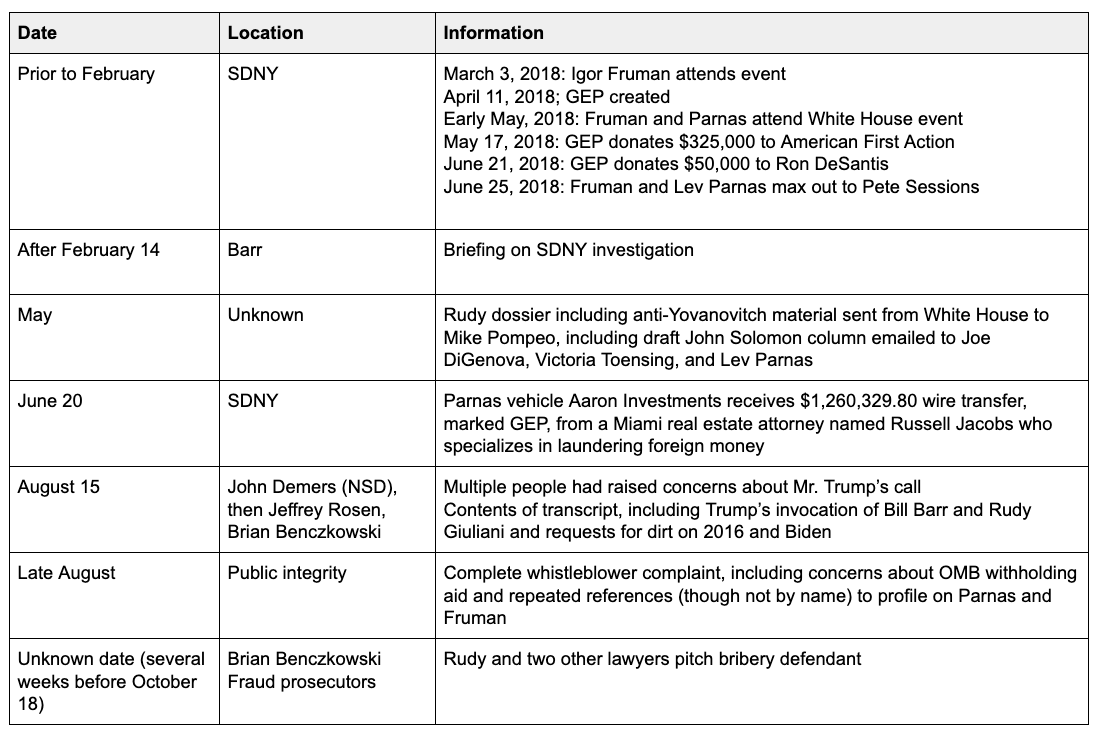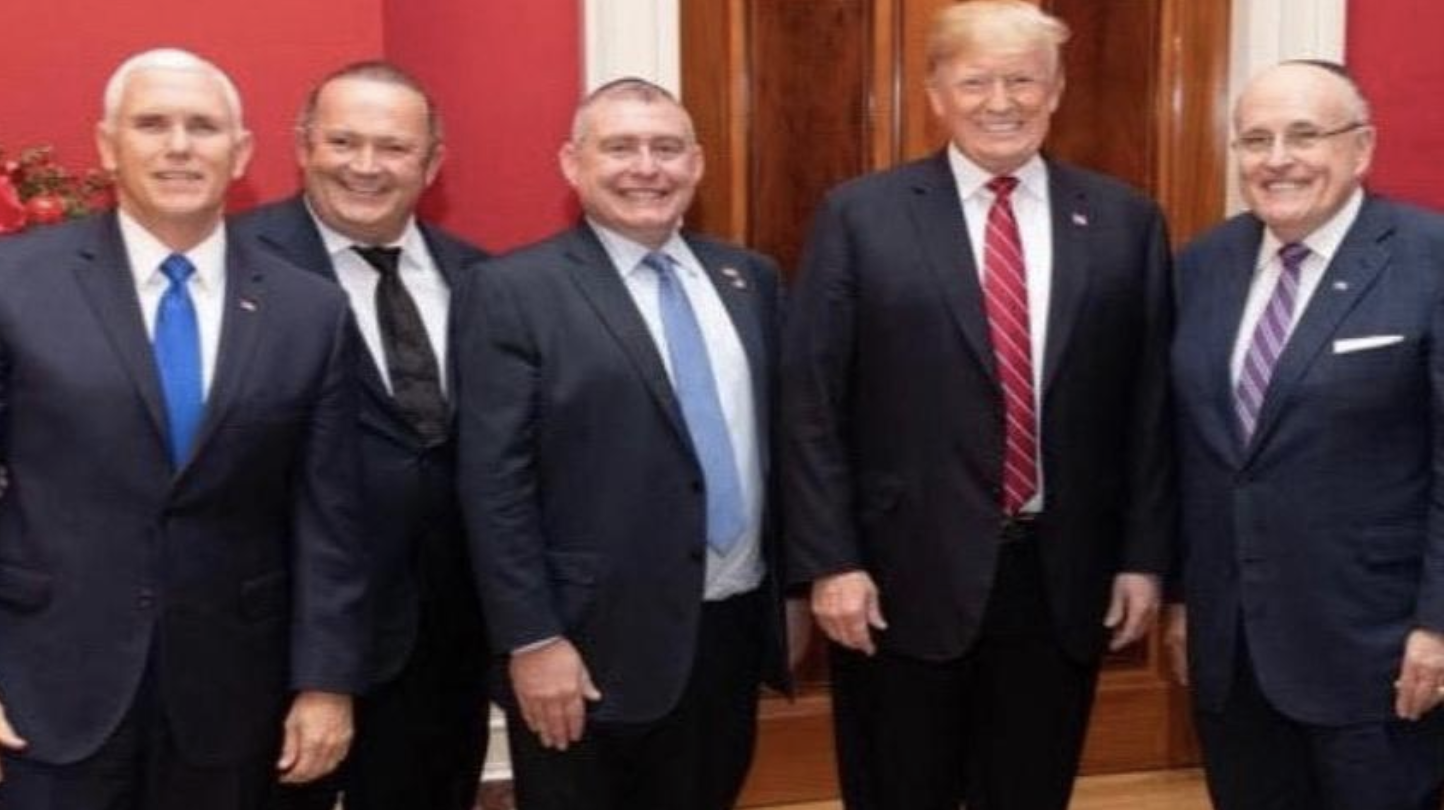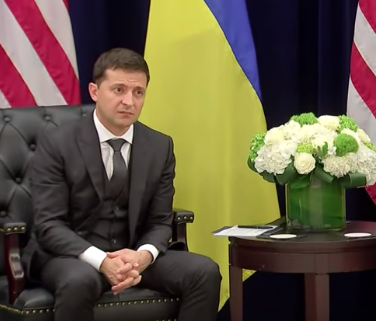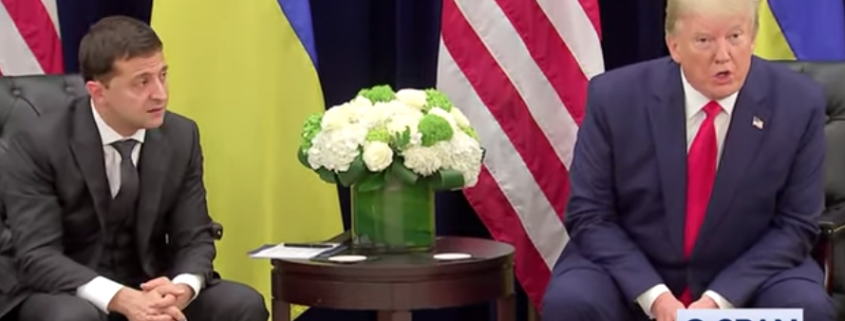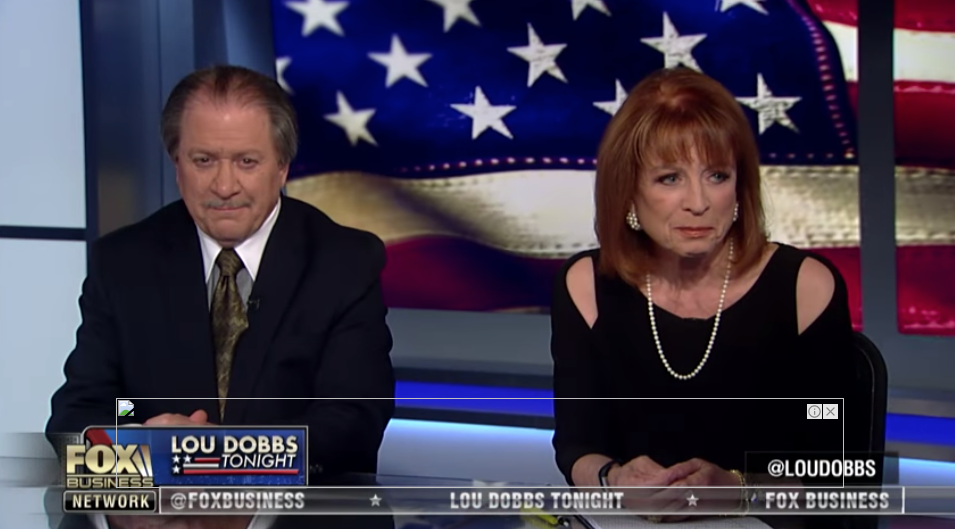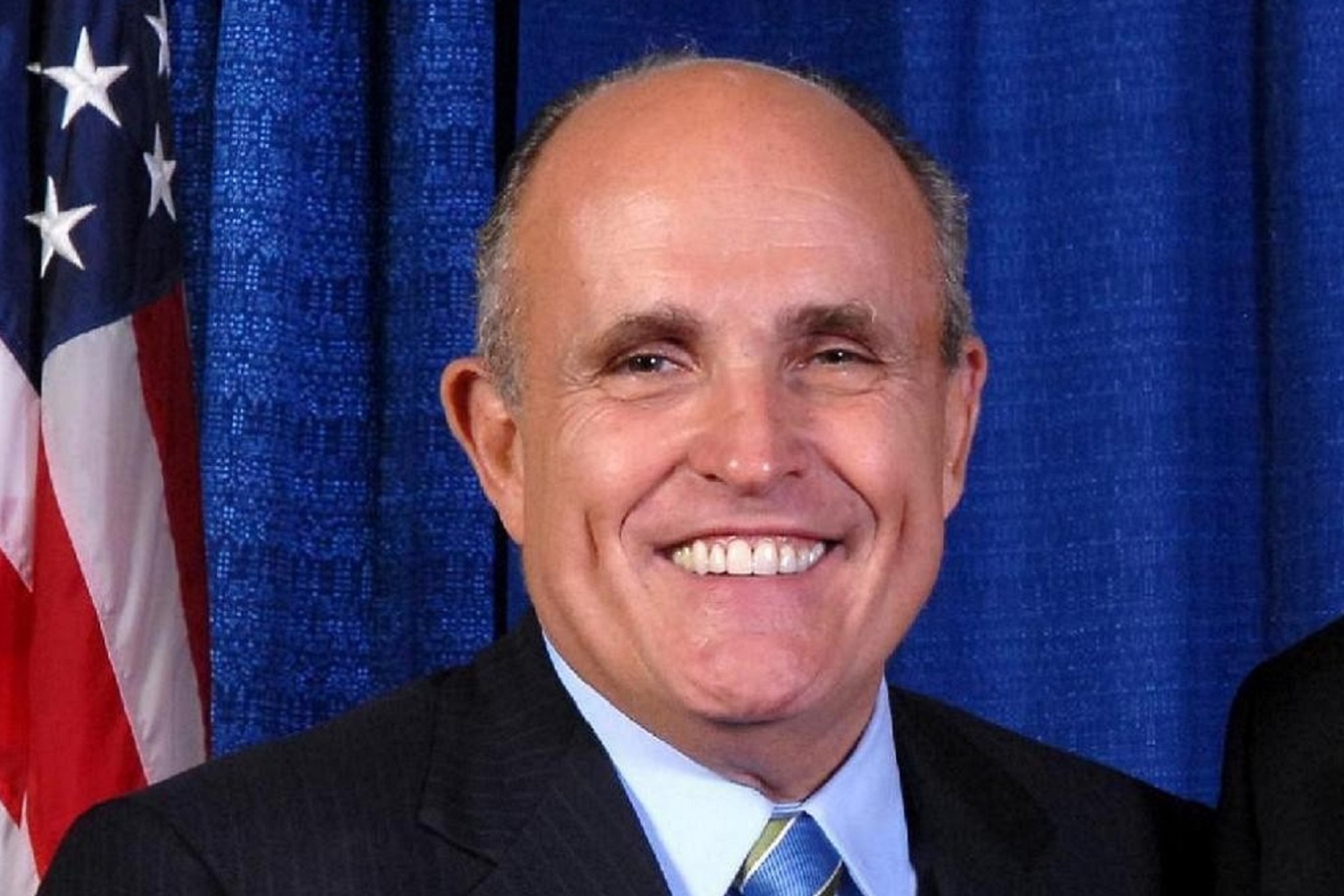In the wake of the Politico and NYT reports on the collapse of the Hunter Biden plea deal (which I wrote up here), right wing operatives have a remarkable complaint: That the President’s son got worse treatment from DOJ than mobbed up Ukrainian oligarch Dmitry Firtash.
The complaint started with Federalist Faceplant Margot Cleveland (who called the good Politico piece and the problematic NYT piece “virtually identical”).
Margot complains that Hunter Biden’s lawyer Chris Clark attempted to reach out to high level DOJ personnel to raise concerns about the degree to which the investigation into his client had been politicized from the start.
Clark’s efforts to meet with Attorney General Merrick Garland and Deputy Attorney General Lisa Monaco failed.
Ultimately, though, he did get a meeting with Associate Deputy Attorney General Bradley Weinsheimer, who oversees ethical violations at DOJ. As Faceplant Margot helpfully lays out, the meeting happened in the wake of yet another attempt by agents involved in the case — after repeated leaks to the press — to force Weiss’ hand.
According to Politico, from the fall of 2022 through the spring of 2023, Clark, on behalf of Hunter, sought meetings with high-level Justice Department officials, including the head of the Criminal Division, the head of the Tax Division, the Office of Legal Counsel, the Office of the Solicitor General, Deputy Attorney General Lisa Monaco, and the attorney general himself. Clark finally succeeded in his efforts to meet with a higher-up at Main Justice, when on April 26, 2023, Clark met with Associate Deputy Attorney General Bradley Weinsheimer and Delaware U.S. Attorney Weiss.
Just one week earlier, Mark Lytle, a partner at the law firm Nixon Peabody, had penned a letter to key House and Senate committees informing them that his client, a career IRS criminal supervisory special agent, sought to make “protected whistleblower disclosures to Congress,” concerning an investigation into a politically connected individual. Those whistleblower disclosures, the letter explained, would “contradict sworn testimony to Congress by a senior political appointee,” would show the “failure to mitigate clear conflicts of interests,” and would provide “examples of preferential treatment” and improper political influence. While the whistleblowers did not identify the politically connected taxpayer, Just The News confirmed the allegations concerned Hunter Biden.
So that means that after Hunter’s lawyer spent some six months trying to swing a meeting with top DOJ officials, a meeting materialized a week after news broke of the whistleblowers’ claims that political favoritism prevented them from properly investigating Hunter Biden.
Soon after Weiss, Hunter’s attorney Clark, and Associate Deputy Attorney General Bradley Weinsheimer met in late April 2023 to discuss the Hunter Biden investigation, the House Ways and Means Committee met on May 5, 2023, and received a “proffer” from the whistleblowers’ attorney concerning the testimony their client would provide Congress about the political interference into the Hunter Biden investigation.
Less than a week later, on May 11, 2023, Weinsheimer “thanked Clark for the meeting and told him Weiss would handle the next steps.” Then, on May 15, 2023, “at the request of the Department of Justice,” the two whistleblowers and their entire elite team of IRS investigators were removed from the Hunter Biden investigation. It was the same day, according to the Times’ weekend reporting, that Wolf proposed resolving the investigation into Hunter Biden with only a deferred prosecution agreement.
Margot leaves out a few details about what led up to the removal of the IRS investigators from the case. According to his own testimony, Gary Shapley had been sidelined months earlier, as he continued to resist requests from DOJ that he provide his emails pertaining to the case. According to Ziegler’s testimony, his related cases had already been put on hold.
Margot seeks to blame a meeting in April for things that IRS agents’ own behavior had triggered months (and in Shapley’s case, over a year) earlier.
After Faceplant Margot’s piece, one of Gary Shapley’s attorneys, Tristan Leavitt, got into it.
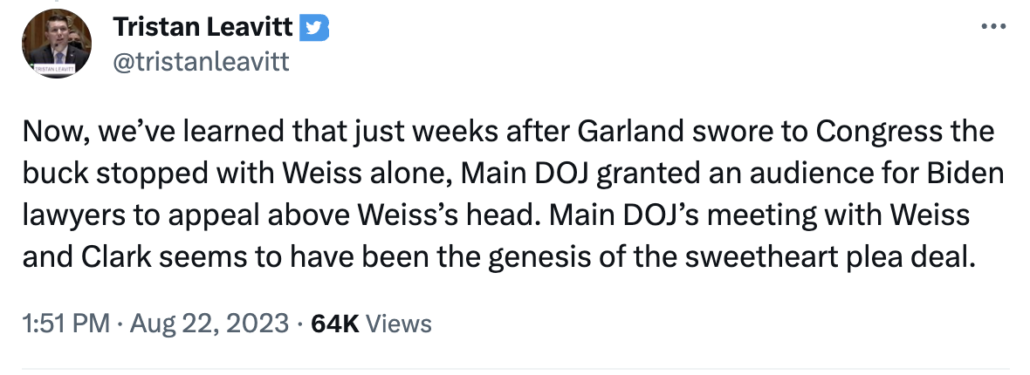
The thing is, Main DOJ grants audiences to the lawyers of high profile suspects fairly routinely. It’s one of the things you get when you hire a a lawyer of a certain stature.
On behalf of “Hunter Biden” “laptop” disseminator Steve Bannon, for example, “Hunter Biden” “laptop” disseminator Robert Costello met with JP Cooney and two other AUSAs twice in November 2022.
And in fact, as I pointed out in the beginning of an amusing exchange with Leavitt, someone directly tied to the politicized allegations against Hunter Biden availed himself of just that kind of access: Dmitry Firtash.
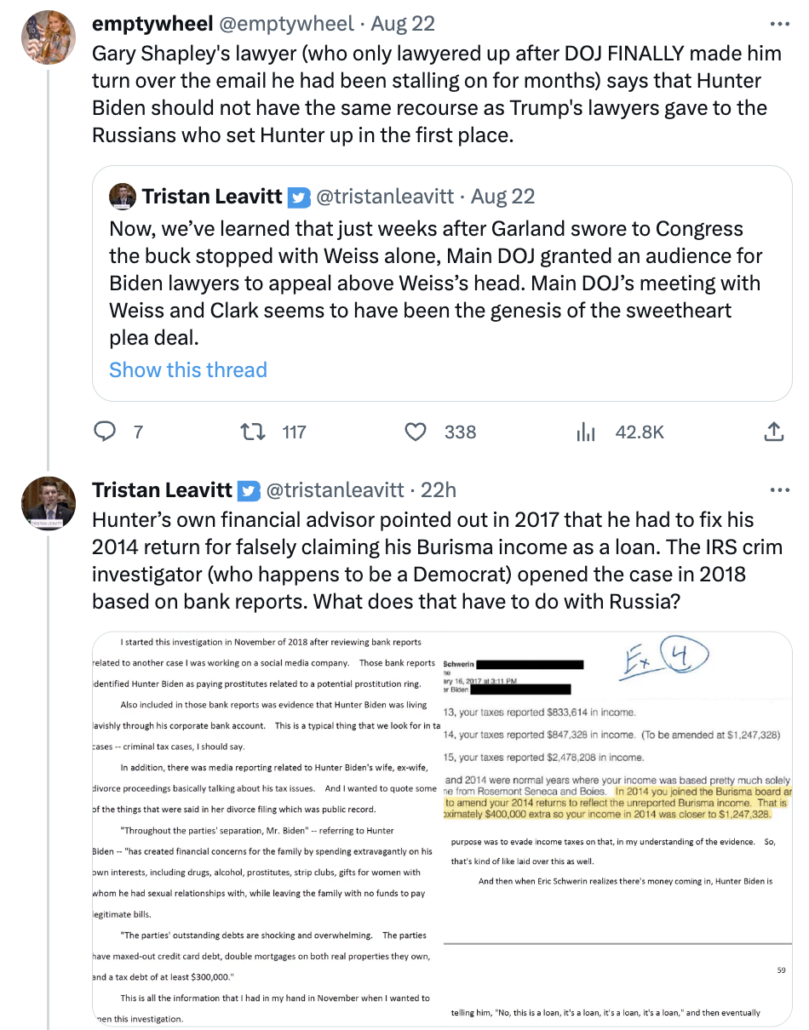
Unlike Hunter Biden, when Dmitry Firtash leveraged that kind of access, his attorneys — Victoria Toensing and Joe DiGenova — were granted a meeting with the Attorney General, with Bill Barr, who may or may not have had a role in putting the investigation into Hunter Biden in Delaware in the first place.
In July, the tycoon changed legal teams, replacing longtime Democratic lawyer Lanny Davis with the husband-and-wife team of Victoria Toensing and Joseph diGenova, who appear frequently on Fox News to defend Trump and have served as informal advisers to Trump’s legal team, including Giuliani.
After taking on Firtash’s case, Toensing and diGenova secured a rare face-to-face meeting with Attorney General William P. Barr and other Justice Department officials to argue against the charges, three people familiar with the meeting said.
Barr declined to intercede, the people said.
A Justice Department spokeswoman said that the case “has the support of the department leadership,” adding: “We continue to work closely with the Austrian Ministry of Justice to extradite Mr. Firtash.”
Mind you, Toensing and DiGenova did not succeed in getting DOJ to drop the case against the mobbed up Ukrainian oligarch — though neither did Chris Clark’s meeting with Associate Deputy Attorney General Bradley Weinsheimer succeed in getting David Weiss to drop the case against Hunter Biden.
After Firtash’s success at getting an audience with the Attorney General was disclosed, only Mitt Romney, of all the Republicans in Congress, voiced any problem with the larger corruption aired during Trump’s first impeachment, which included the means and purpose for which Toensing got that meeting. But Republicans now feign outrage that the American citizen targeted in that earlier access campaign might seek a similar meeting.
At least according to Lev Parnas, the Firtash meeting had a direct role in a campaign against Hunter Biden, a campaign that developed in parallel to the criminal investigation and which — at least since Leavitt’s client has gone public — has provably merged.
Rudy first reached out to Parnas in November 2018. Joseph Ziegler first attempted to open the investigation, based on payments to a sex worker network, in November 2018.
In January 2019, per Ziegler’s testimony, Delaware’s US Attorney’s Office first started looking into Hunter Biden. That same month, Rudy and Parnas met with Yuri Lutsenko in New York, where Rudy — who connected Trump in on the phone in the way Republicans falsely alleged Hunter connected his father in to weigh in on the substance of business deals — tried to trade access to Bill Barr in exchange for dirt on Hunter and $200K.
Giuliani continued to receive conspiracy theories from different sources, and remained insistent that there must be some data on the Bidens’ corruption. In late January 2019, my business partner Igor Fruman got word that Yuri Lutsenko, Shokin’s replacement as Ukraine’s Prosecutor General, was in New York and wanted to meet with Giuliani to discuss some legal matters. We set up the meeting in Giuliani’s office on Park Avenue. There, Lutsenko explained he’d requested the meeting because he wanted to sit down with Bill Barr and, Attorney General to Attorney General, discuss the overall problem of Ukrainian and American corruption, including the funneling of Ukrainian money into American institutions. Giuliani stopped Lutsenko and said he wasn’t interested in that, only in information concerning Joe and Hunter Biden. He then added statements to the effect that if Lutsenko wanted a conversation with Barr, he would need to offer a give and take, and Giuliani was interested in details about the Bidens.
[snip]
During the meeting, Giuliani stopped to call President Trump for about 3-5 minutes to update him on how the meeting was going with Lutsenko, and told Lutsenko that Trump was very happy with the help he was giving. He gave Lutsenko the thumbs-up. Lutsenko then promised that if we went to Ukraine, he would help us meet President Poroshenko and other officials who were dealing directly with the Burisma investigation. After the first meeting, Lutsenko kept pressuring Giuliani that he needed to meet Bill Barr. However, Giuliani eventually told Lutsenko he hadn’t provided enough information, and that the only way he could meet Bill Barr was if he retained Giuliani for $200,000. He then gave Lutsenko a “contract”. (It should be noted that Lutsenko refused to pay and to this day has never met Bill Barr.)
A few days later, Giuliani told me that he had decided that it might not be a good look for him to represent Ukrainian officials while representing Donald Trump, and introduced me to attorneys Victoria Toensing and Joseph DiGenova, who he said would represent Lutsenko instead. Later on, Giuliani told me that Toensing and DiGenova had agreed to split the $200,000 retainer fee in some part with him.
In April 2019, Ziegler’s investigation and DE USAO’s investigations were consolidated.
The next month, Rudy’s efforts started to incorporate Firtash, with Toensing and DiGenova again serving as the public face of the effort, but with Rudy allegedly sharing in the spoils.
Near the end of our trip to Paris, we were introduced to one of Igor Fruman’s associates, a friend who happened to be an employee of a Ukrainian oligarch named Dmitry Firtash, who had many political and business connections, including with the head of Burisma, Zlochevsky. When we returned to the U.S., we met with the BLT Team and John Solomon said Firtash’s help would be key because of his relationship with Zlochevsky.
The problem was that Firtash would prove nearly impossible to contact. He was also facing a serious extradition case to the U.S. for a number of bribery, racketeering and other charges since 2014. Solomon and Giuliani put together a package of documents regarding confidential information in Firtash’s case, and had me travel to Vienna in June 2019 to meet with Firtash, letting him know that Giuliani and our whole team were serious and that we could help him if he helped us. From June until the time of my arrest in October 2019, we had ongoing communications with Firtash.
In October 2019 — per notes taken by Leavitt’s client — FBI received the first official outreach from John Paul Mac Isaac about a laptop that appears to have been packaged up, during a period when Hunter Biden’s digital life shows signs of being compromised, after Ziegler had opened the investigation. That happened just days after Rudy, Parnas, and John Solomon had planned to go to Vienna to obtain a different instance of the “Hunter Biden” “laptop,” a trip that was forestalled by Parnas’ arrest and Barr’s warnings to (at least) Fox News.
In the early part of October 2019, I got a call telling me to go to Vienna with Giuliani, where the former Chief Financial Officer of Burisma, Alexander Gorbunenko, would meet Giuliani and give us Hunter Biden’s hard drive and answer any questions we had. My Ukrainian contacts also told me they would have Viktor Shokin in Vienna to give an interview to Sean Hannity of FOX News, because Shokin was supposed to appear in a Viennese court on behalf of Dmitry Firtash, giving sworn testimony in court that would basically be saying what Giuliani wanted him to say – that he was fired because of Joe Biden. (As mentioned earlier, Biden did make statements that he had helped to get Shokin fired, but Ukrainian investigations into the matter some years later concluded that Shokin had been terminated because of multiple cases of corruption while in office.)
I have text messages confirming all these plans, and all are among the materials I submitted to Congress during the first impeachment inquiry. These include messages from Hannity setting up the interview, and messages coordinating that Giuliani, Toensing, and I would go to Vienna to meet Burisma’s ex-CFO Gorbunenko. Just before we were to fly to Austria, there was a meeting at FOX News in Washington, because Solomon was appearing that night on Hannity’s show and Giuliani was appearing on Laura Ingraham’s. The BLT Team got together in a FOX conference room and discussed how we would blow up the story once we got Hunter Biden’s hard drive in Vienna.
Right in the middle of these seeming lockstep parallel investigations of Hunter Biden — by Bill Barr’s DOJ and by the then President’s lawyer all over Europe, and before offers of two laptops — both with ties to Rudy Giuliani — were made, two things happened.
On July 25, 2019, then President Donald Trump got on the phone with Volodymyr Zelenskyy and — after making a quid pro quo tying aid to the announcement of an investigation into Burisma — told Ukraine’s president that both Rudy and Barr would reach out.
I will have Mr. Giuliani give you a call and I am also going to have Attorney General Barr call and we will get to the bottom of it.
[snip]
I will tell Rudy and Attorney General Barr to call.
The next month, in August, Victoria Toensing and Joe DiGenova succeeded in scoring the meeting Firtash wanted with the Attorney General. The Rudy investigation and the Barr investigation met first at Trump’s hotel and then at DOJ. And the day after IRS got a warrant to access the Hunter Biden laptop seemingly packaged up after Joseph Ziegler was already investigating, DOJ told Barr they were sending him a laptop.
Whether or not that Dmitry Firtash meeting was an explicit meeting of the Rudy and the DOJ investigations, whether or not that laptop Barr obtained was the same one Rudy had a role in packaging up, we do know the investigations have since merged.
After the first press blitz about Gary Shapley — arranged in significant part by Tristan Leavitt — Bill Barr raised attention to an FD-1023 obtained via a channel he set up to ensure that Rudy could share information obtained from known Russian spies without being prosecuted for soliciting known Russian spies. In response, Shapley and Ziegler both complained that they hadn’t had access to an informant report the sole operative detail of which involved a 2019 call set up with Mykola Zlochevsky during impeachment, in which he used those politicized discussions to reverse his earlier admissions in order to claim to have made a bribe to Joe Biden. Remarkably, Shapley — lawyered by people with close ties to Chuck Grassley, who released the FD-1023 — claims to have known about the tainted Pittsburgh evidence in real time.
That is, even three years later (or perhaps, especially three years later) the IRS agents who should have seen Hunter Biden’s digital life get attacked if not packaged up for their own consumption are complaining they’re not able to pursue leads obtained via a channel catering to Russian spies.
It’s not surprising that you could look at this timeline and still have right wingers claim that Hunter Biden is the one who got favorable treatment. Those people don’t care if they reveal their cynical hypocrisy in pursuit of attacks on democracy.
What is surprising is that people claiming to be journalists wouldn’t immediately lay out how absurd that is. The “democracy dies in darkness” guys sitting on their own evidence about this stuff have assigned upwards six journalists to cover this story, but few have shown any curiosity about how the known political hit job on Hunter Biden ties to the wails of the sources whose own stories they don’t bother to test.
It is the collective stance of the entire Republican party, save Mitt Romney, that it’s fine for Dmitry Firtash to score a meeting with the Attorney General as part of an alleged quid pro quo to get an investigation into Hunter Biden, but it’s a sign of corruption for Hunter’s lawyers to point out that happened to DOJ.
The Republican party claims it is a sign of corruption to call out their own corruption.
And virtually every Hill journalist is playing along.

